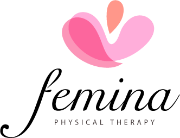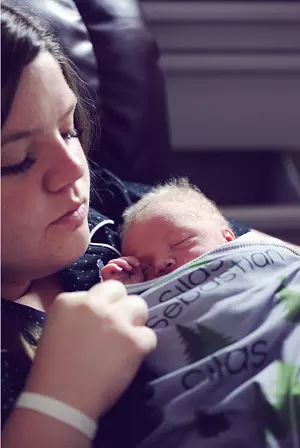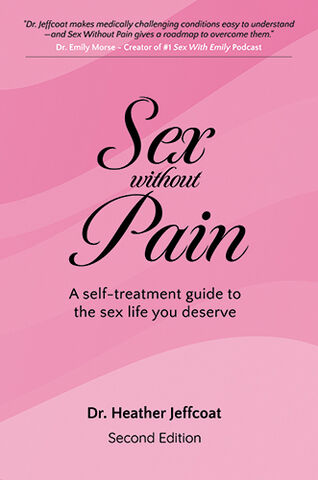Levator Ani Avulsion: Understand your pelvic anatomy to better understand your injury
The pelvic floor is a group of muscles positioned like a hammock along our saddle region.
The group of muscles attach from our pubic bone on the inside and then to our lateral pelvic walls with a bundle of collagen fibers called the levator arch, and attach to the ischial spines (the inside of the sit bones) and tailbone on the back side. During vaginal childbirth, the pubococcygeus muscle, a group of pelvic floor muscles, stretches 3.26 times more than its normal length to make room for the coming baby in the vaginal canal! As you can imagine, this may result in some perineal tearing and/or levator ani avulsion.
Levator ani avulsion occurs when muscle fibers of the puborectalis (the innermost muscle of the pubococcygeus group) are detached from its insertion on the pubic bone. This is somewhat frequently occurring, and about 20% of women experience an avulsion during their first vaginal childbirth. Risk factors include instrumental-assisted delivery (forceps presenting a higher risk than vacuum), older age at vaginal birth, second stage lasting longer than 2 hours, baby weighing over 8 pounds and 13 ounces, and those who had a grade 4 perineal tear.
What does this mean for women that have this injury?
As bad as it sounds to have an Levator Ani Avulsion, research has shown that it does not necessarily increase perineal pain in postpartum or beyond. However, it does put women at risk for pelvic organ prolapse either early in postpartum or in their later years.
 Prolapse and Decreased Vaginal Sensation are common with a Levator Ani Avulsion
Prolapse and Decreased Vaginal Sensation are common with a Levator Ani Avulsion
Pelvic organ prolapse is a weakening of the pelvic support system (fascia, ligaments, muscles) that leads to a descent or shift of organs bulging onto the vaginal wall.
Women with prolapse often complain of a vaginal bulge, heaviness in vagina, or like an old/dry tampon “hanging” out. Symptoms often increase with standing, lifting, after having a bowel movement and often improve in a restful lying down position. Researchers have found that women with Levator Ani Avulsion tend to have a larger levator hiatus size (vaginal canal opening) and decreased strength in pelvic floor muscles compared to those without. These two factors are likely contributors to a decreased support system leading to prolapse. Another common complaint is decreased vaginal sensation, which can lead to decreased pleasure during sexual activity. One study found that at six months postpartum, those with levator ani avulsion following a forceps-assisted delivery reported a decrease in these categories: arousal, natural vaginal lubricant, orgasm, and sexual satisfaction compared to their counterparts.
What can we do?
Knowing what we know about levator ani avulsions, we can be proactive. Regardless of type of pregnancy or complicated v. uncomplicated childbirth (regardless of severity of tearing or avulsion, or even type of delivery-yes cesarean section too!), it is a great idea to know and assess the health of your pelvic floor before and/or after childbirth. This way, we can improve any early symptoms you may be experiencing, educate early on to prevent symptoms from occurring, and overall empower the body physically and sexually. Pelvic floor physical therapists can help improve the strength and coordination of the pelvic floor muscles and improve the integrity of the other tissues that assist in organ support. They also help with many different types of sexual dysfunction through education, manual therapy, therapeutic exercises, and neuromuscular re-education.
Pelvic floor physical therapists also assess and treat other common postpartum conditions such as:
- Neck/midback/lowback pain
- Bladder/Bowel symptoms (too much or too little, incontinence, pain, straining, etc.)
- Movement patterns with baby (holding, breastfeeding, lifting)
- Return to regular activity and/or exercise
- Return to sexual activity/pain-free sexual activity
There is help and specialized pelvic floor physical therapists are here for you!
References:
Cassadó J, Simó M, Rodríguez N et al. Prevalence of levator ani avulsion in a multicenter study (PAMELA study). Archives of Gynecology and Obstetrics. 2020; 302:273–280 https://doi.org/10.1007/
Lien K, Mooney B, DeLancey JOL, and Ashton-Miller JA. Levator Ani Muscle Stretch Induced by Simulated Vaginal Birth. Obstet Gynecol. 2004; 103(1): 31-40.
Handa VL, Roem J, Boaquist JL, et al. Pelvic organ prolapse as a function of levator ani avulsion, hiatus size, and strength. Am J Obstet Gynecol. 2019; 221(1): 41.e1–41.e7. doi:10.1016/j.ajog.2019.03.
Handa VL, Blomquist JL, Roem J, et al. Levator morphology and strength after obstetrical avulsion of the levator ani muscle. Female Pelvic Med Reconstr Surg. 2020; 26(1): 56-60. doi:10.1097/SPV. 0000000000000641






















